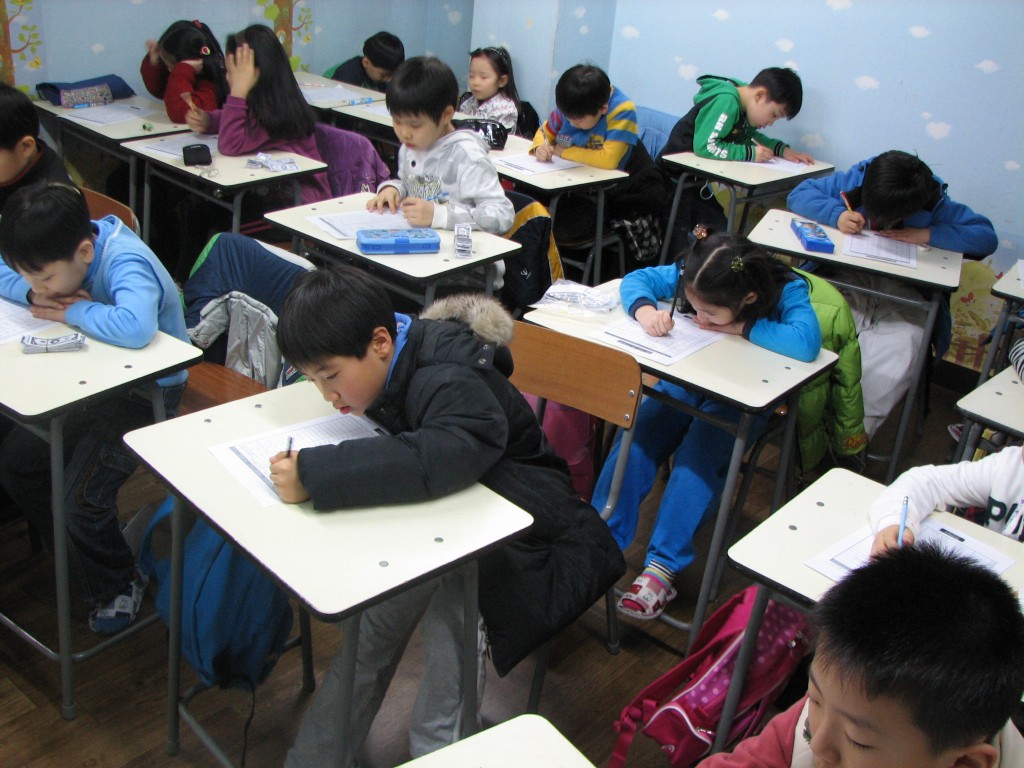Tutors in South Korea, Paid According to Popular Demand, Can Earn Millions
South Korea has made a free market based around demand for a particular teacher’s skills, not a company’s logo

Photo: Marie
In the U.S. teachers, on average, earn salaries of $51,000, according to Forbes. If they want to make more, Forbes suggest, they should get a second job over the summer, or else get a graduate degree and teach postsecondary students. In South Korea, however, there is another path to greater earnings. Teachers can go into private online tutoring, where their value is based on how good they are at their job. The best tutors, such as “rock-star” teacher Kim Ki-hoon, earn more than $4 million, the Wall Street Journal reports. Here’s how Kim does it:
Mr. Kim has been teaching for over 20 years, all of them in the country’s private, after-school tutoring academies, known as hagwons. Unlike most teachers across the globe, he is paid according to the demand for his skills—and he is in high demand.
Mr. Kim works about 60 hours a week teaching English, although he spends only three of those hours giving lectures. His classes are recorded on video, and the Internet has turned them into commodities, available for purchase online at the rate of $4 an hour. He spends most of his week responding to students’ online requests for help, developing lesson plans and writing accompanying textbooks and workbooks (some 200 to date).
Such courses are tremendously popular in South Korea, where parents dropped around $17 billion in 2012 alone, according to the WSJ. For comparison, in 2010, U.S. spent around $5 to 7 billion on private tutors, including one-on-one and internet lessons, according to The New York Times. In 2009, the Wall Street Journal reported that parents spend around $2.9 billion on SAT prep alone, most of which was directed to the test prep companies Kaplan and the Princeton Inc.
So why aren’t after school tutors making millions in the U.S.? The difference is that South Korea has made a free market based around demand for a particular teacher’s skills, not a company’s logo. In hagwons such as the one Kim teaches for, kids and their parents hand pick which teacher they want to give the lesson. As Kim told the WSJ, the harder he works and the better job he does, the more he gets paid. On the other hand, those teachers who don’t perform well get fired.
More from Smithsonian.com:
Where Plato Is Your Professor
Computers At Home Neither Help Nor Hurt Students
/https://tf-cmsv2-smithsonianmag-media.s3.amazonaws.com/accounts/headshot/Rachel-Nuwer-240.jpg)
/https://tf-cmsv2-smithsonianmag-media.s3.amazonaws.com/accounts/headshot/Rachel-Nuwer-240.jpg)